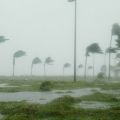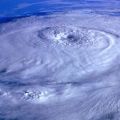Health Risks of Floodwaters
26jul 2021
Understanding the health and safety issues concerning floodwaters is crucial.
Read to discover more about the health risks of floods in Florida.

Flooding is common in Florida, a coastal state. The early arrival of Hurricane Elsa could indicate a busier-than-usual hurricane season, heightening the probability of floods. Property preparation ahead of time is critical to prevent expensive damage and repairs, such as roof patch tarp installations or roof repair.
Understanding the health and safety issues concerning floodwaters is crucial. To discover more about the health risks of floods in Florida, call Armstrong Water Mold Cleanup & Restorations at (239) 592-3777.
Infections
Understanding the health and safety issues concerning floodwaters is crucial. To discover more about the health risks of floods in Florida, call Armstrong Water Mold Cleanup & Restorations at (239) 592-3777.
Infections
- Open wounds, cuts and abrasions exposed to floodwater can be infected by bacteria and other pathogens from the water.
- If contacting floodwaters is unavoidable, proper protective clothing such as gloves, pants and boots must be worn.
- Apply a waterproof bandage on open wounds to prevent infections and maintain cleanliness thorough washing with soap and water.
- If redness or swelling develops or if there is a foreign object in the wound, immediately seek medical help.
- For more information, read the Centers for Disease Control and Prevention (CDC) disclaimer on Emergency Wound Care After a Natural Disaster.
Injuries
- Deep and murky floodwaters hide broken glass, metal fragments and other dangerous injury-causing debris.
- Contact a health care professional if you suffer a puncture wound or if any open wound becomes contaminated.
Animal and Insect Bites
- Flooding disturbs animal habitats and displaces wildlife.
- Avoid contact with animals, insects and reptiles especially in areas with a high wildlife population, such as Florida.
Flood-Borne Diseases
- Ingesting floodwater can cause vomiting or diarrhea because of bacteria, viruses or parasites. Germs that contaminate floodwater include Cryptosporidium, Giardia, E. coli, and salmonella. Stomach distress from floodwaters can escalate over time and cause dehydration.
- There is also a risk of contracting leptospirosis, cholera and typhoid fever in flooded areas.
- Flooding can attract mosquitoes which carry dengue fever, chikungunya, Zika virus and the West Nile virus.
- After a hurricane or storm, it is advised to wear long sleeves and use insect repellant to avoid mosquito bites.
- Hepatitis A and E can be transmitted through contaminated water or food, although in the United States hepatitis E is considered rare.
- Legionnaires' disease, caused by the bacteria Legionella, is a respiratory infection which causes chills, coughing, shortness of breath and fever. It can be treated with antibiotics but can be fatal if it's not caught early.
Chemicals
- Floods displace chemical containers and cause spillages, leaks, fires and explosions (gas and propane tanks). Contact the local fire department if propane tanks have turned up (do not attempt to move them).
- Use insulated gloves when removing car batteries, as they may still have an electrical charge. Avoid coming in contact with spilled acid from damaged car batteries.
Electrical Hazards
- Report fallen power lines and do not drive through water with downed power lines.
- Safely shut off electrical power to avoid electrocution, explosions or fires.
- Call 911 immediately if someone has been electrocuted.
Can the COVID-19 virus spread to people through floodwater?
- There is no evidence that supports the spread of the COVID-19 virus through floodwater.
- The CDC is not aware of any scientific reports which claim that COVID-19 can be contracted through ingesting or coming in contact with water contaminated with the fecal matter of an infected person.
- Avoid contact with floodwaters to circumvent diseases and other hazards.
Contact Armstrong for Flood Damage Restoration Today
Armstrong Water Mold Cleanup and Restoration has been restoring residential and commercial properties after disasters including hurricanes and tropical storms since 2005. We offer quality service, affordable pricing, and guaranteed satisfaction.
- 100% Workmanship Guaranteed
- Bonded and Insured
- Complete Restorations (Water Damage/Mold Remediation/Fire Damage)
- Licensed Certified General Contractor
- State of Florida Residential Contractor’s License #L1607070001182
- Works with Insurance Companies
Armstrong Water Mold Cleanup and Restoration Services
- Disaster Restoration
- Home Improvements
- Roof Tarps for Residential and Commercial Properties
- Water and Mold Services
Discover more by calling Armstrong Water Mold Cleanup and Restoration at (239) 592-3777 or connecting with us online today.
Related items:
5/28/2021
Types and Classes of Water Damage in Florida
Read about the types and classes of water and how a professional restoration company can help.
 5/28/2021
What Should I Do If My Basement Floods?
5/28/2021
What Should I Do If My Basement Floods?
Learn about what to do after basement flooding. For SWFL water & mold cleanup, call Armstrong Water Mold Cleanup & Restorations at
(239) 531-2000.
 6/28/2021
Stay Safe After a Hurricane or Other Tropical Storm
6/28/2021
Stay Safe After a Hurricane or Other Tropical Storm
Tips to keep safe after a hurricane or tropical storm. Contact Armstrong Water Mold Cleanup and Restoration at (239) 592-3777, or at https://www. armstrongwatermoldcleanup. com/contact/.
7/26/2021
How to Prepare Your Business for a Hurricane
Commercial businesses must take steps to protect their property during disasters to ensure that minimal damages will be incurred. Learn more.
 6/28/2021
The Essential Guide to Hurricane Preparedness
6/28/2021
The Essential Guide to Hurricane Preparedness
Protect and secure your property from hurricanes by having a roof tarping system.